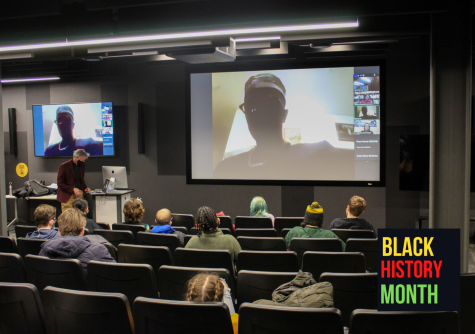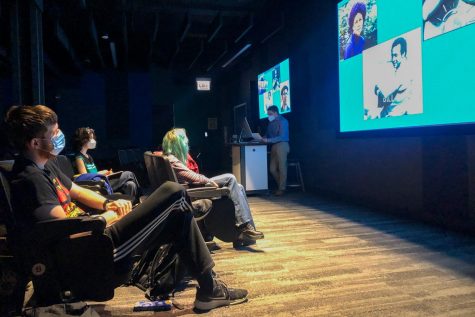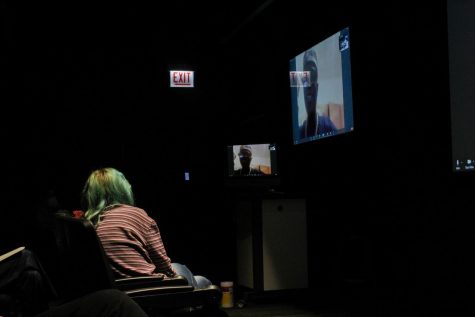Sankofa Week: The legacy of early African experimental filmmaking
February 25, 2022

With some seated in the theatre and some at home on Zoom, the Columbia community gathered for events each day of the week to appreciate the 1993 film “Sankofa” and similar experimental films as part of the college’s Sankofa Week.
On Thursday, the 1104 S. Wabash Ave. building hosted an event titled “How Sankofa Inspires Narrative and Experimental Alternatives to Hollywood Slave Narratives,” which included the insight of several faculty members and a guest speaker.
Sankofa Week, named after Haile Gerima’s 1993 film, was organized across three schools: Media Arts, Fine and Performing Arts, and Liberal Arts and Sciences. From Feb. 21 – 25, students, faculty and staff were able to attend either in-person or online panel discussions that complimented the film’s subject matter.
The series of events was also a part of a nationwide rollout to screen the restored 1993 film by ARRAY every day during Black History Month with Columbia being one of the locations selected to participate.

“The stories that Hollywood and other mainstream cinemas have chosen to show, especially about enslavement in the United States — there’s a tendency towards victimhood, towards trauma, rather than towards resistance and reclamation,” said Ted Hardin, associate professor of Cinema and Television Arts and filmmaker of 22 years.
Hardin said the four main themes presented in Gerima’s film were resistance, the liberation of territory, reclamation of history, and community — all themes that have been expanded upon through Sankofa Week.
Zoran Samardzija, associate professor of Cinema and Television Arts, expanded on these topics when discussing the impact the LA Rebellion filmmakers had on filmmaking — a group that included Gerima.
“The LA Rebellion filmmakers were a very specific kind of African American or Black American expression … the specific political culture concerning Black liberation,” Samardzija said. “There is a rebellion against the cinematic apparatus itself as how it’s been employed by Hollywood and other structures, promoting a kind of white supremacy.”

Moussa Sene Absa, a Senegalese film director and guest speaker during Sankofa Week, said the act of filmmaking is a method of “crossing a bridge” between cultures through curiosity, defining the work as a “humanitarian act.”
“The world is missing one leg and this leg is Africa,” Absa said. “So, all these things are very important, I think, for the Western world, especially in Hollywood, [it’s important] to understand that there is a huge demand of stories from [Africa], and let me tell you if they don’t do it, it’s pity.”
The restored version of “Sankofa” is currently available to view on Netflix.







